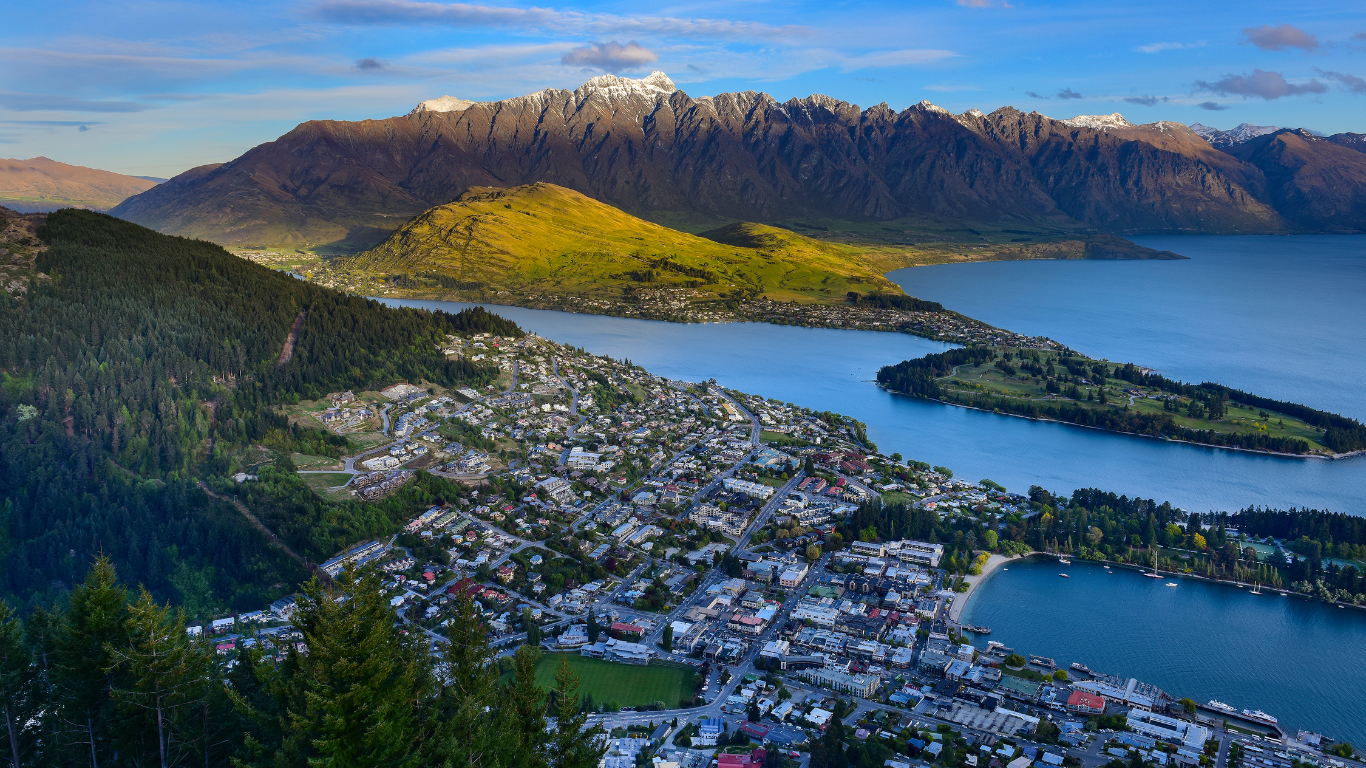New Zealand, with its breathtaking landscapes, vibrant cities, and welcoming culture, is a top destination for those looking to live abroad. Whether you’re relocating for work, studying, or simply exploring the idea of long-term living in this beautiful country, understanding the cost of living is crucial. This guide provides a detailed breakdown of expenses in New Zealand in 2025, from housing to daily essentials, to help you budget effectively.
1. Housing Costs
Housing is likely to be your biggest expense in New Zealand. The cost varies significantly depending on the city and type of accommodation.
Rent in Major Cities:
- Auckland: $2,200 NZD/month for a one-bedroom apartment in the city center.
- Wellington: $1,800 NZD/month for a similar apartment.
- Christchurch: $1,400 NZD/month for a one-bedroom apartment.
Rent Outside City Centers:
- Auckland: $1,600 NZD/month for a one-bedroom apartment.
- Wellington: $1,300 NZD/month.
- Christchurch: $1,000 NZD/month.
Buying Property:
The median house price in New Zealand is approximately $850,000 NZD in 2025. This can be higher in cities like Auckland and Wellington, where prices exceed $1,000,000 NZD.Utilities:
Monthly utility bills, including electricity, heating, cooling, water, and garbage collection, average $200-$300 NZD. Internet costs range from $70-$100 NZD per month.
2. Food and Grocery Costs
Food prices in New Zealand are slightly higher than in many other countries, due to its remote location and reliance on imports.
Groceries:
- Monthly grocery costs for a single person range from $500 to $700 NZD.
- Staples like bread ($3.50 NZD), milk ($2.50 NZD/liter), and rice ($4 NZD/kg) are reasonably priced.
- Fresh produce is seasonal, with prices for fruits and vegetables varying significantly throughout the year.
Dining Out:
- A meal at an inexpensive restaurant costs around $20 NZD.
- Mid-range restaurants charge about $60 NZD for a three-course meal for two.
- Coffee: $5 NZD per cup.
3. Transportation Costs
Getting around New Zealand is relatively affordable, with various transportation options available.
Public Transport:
- Monthly transport passes: $140 NZD in cities like Auckland and Wellington.
- Single bus or train tickets: $3-$5 NZD.
Owning a Car:
- Fuel costs approximately $3 NZD per liter in 2025.
- Car insurance: $60-$120 NZD per month.
- Vehicle maintenance and registration: $300-$500 NZD annually.
Biking and Walking:
Many cities are bike-friendly, with cycling proving to be an affordable and eco-friendly option.
4. Healthcare Costs
New Zealand has a high-quality healthcare system, offering both public and private services.
Public Healthcare:
Residents and work visa holders benefit from subsidized or free healthcare under the public system.- GP visits: $20-$50 NZD per appointment (varies by location).
- Emergency services: Free for residents.
Private Healthcare:
Private health insurance costs range from $80 to $200 NZD per month, depending on the coverage.
5. Education Costs
For families moving to New Zealand, education is another consideration.
Public Schools:
Free for residents and work visa holders, but parents are expected to contribute to school donations, typically $100-$300 NZD annually.Private Schools:
Tuition fees range from $20,000 to $30,000 NZD annually.Higher Education:
International students pay between $20,000 and $35,000 NZD annually for university programs.
6. Entertainment and Leisure
New Zealand offers a wealth of activities, from outdoor adventures to cultural experiences.
Outdoor Activities:
Many outdoor activities, like hiking and visiting national parks, are free or cost very little.- Ski passes: $120-$150 NZD per day.
- Surfing lessons: $80-$100 NZD per session.
Cultural Activities:
- Movie tickets: $20 NZD.
- Museum entry fees: $10-$30 NZD.
- Gym memberships: $60-$100 NZD per month.
7. Miscellaneous Costs
- Clothing: Clothing prices are comparable to Western standards, with international brands slightly more expensive due to import taxes.
- Mobile Plans: Monthly mobile plans with data cost $30-$60 NZD.

8. Estimated Monthly Budget
Here’s an approximate breakdown of monthly costs for a single person living in a major city in New Zealand:
- Rent: $1,800 NZD
- Groceries: $600 NZD
- Transportation: $140 NZD
- Utilities: $250 NZD
- Healthcare: $80 NZD
- Entertainment: $200 NZD
Total: $3,070 NZD
Tips for Managing Costs in New Zealand
- Live Outside City Centers: Save on rent by living in suburban areas.
- Shop at Local Markets: Buy fresh produce at farmers’ markets to save money.
- Use Public Transport: Avoid owning a car unless necessary.
- Take Advantage of Free Activities: Enjoy New Zealand’s natural beauty with free hikes and outdoor activities.
How Alliance Visas Can Help You Live and Work in New Zealand
New Zealand offers a high quality of life, safety, and opportunities for outdoor enthusiasts. While the cost of living can be high, the country’s stunning landscapes, friendly communities, and excellent infrastructure make it a worthwhile destination for those looking to live abroad.
Navigating the logistics of living and working abroad can be overwhelming, but Alliance Visas is here to simplify the process for you. From visa application guidance to providing expert advice on relocation, we offer personalized support to ensure a smooth transition. Whether you’re seeking the best visa options, tips on finding affordable housing, or insights into New Zealand’s job market, our team is dedicated to making your move stress-free and successful.
Take the first step toward your new life in New Zealand by contacting Alliance Visas today. Your dream of living and working in this beautiful country is just a click away!
